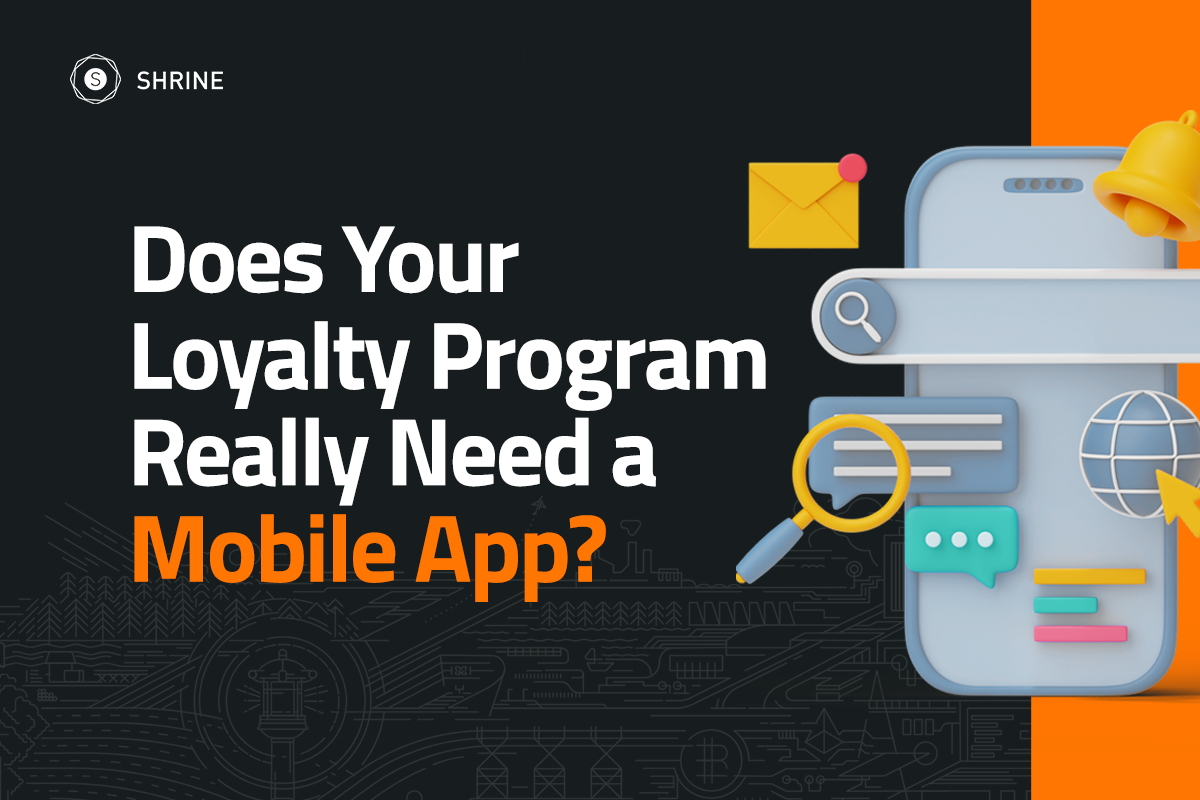Building an app is like building a skyscraper – you need to have an architecture plan before you begin. You don’t want to be making modifications to the design mid-way through construction; the time for those conversations is before the building begins. Redeveloping mid-project is costly and extremely inefficient.
At Shrine, many of the apps we help launch are re-builds. They come to us as apps in crisis because project owners wanted to build fast. These entrepreneurs and businesses failed to consider certain key questions discussed below. By the time issues were noted, they had a half-built skyscraper that could not be completed.
Speed to market is important, but it won’t mean anything if you don’t have a solid foundation. Before you rush to begin development on your new mobile or web-based app idea, ask yourself these five important questions.
1. How will your app ensure continuous engagement?
When you’re launching a new product you’re asking people to change what they do in their daily processes. People are stuck in their habits, so this isn’t an easy thing to achieve.
One of the most common mistakes entrepreneurs make is selling a product without thinking about the value the customer is getting. The market is flooded with apps- why would someone want to download (or purchase) yours? And even more, importantly, is the value being provided high enough to drive continuous engagement?
It’s essential that customers not only download the app, but also that they continue to use it. How will you ensure that? Often a client will come with a compelling story on why someone might use the app- but it doesn’t really have a story wound into it that would make it something that people have to use everyday. An app that people are going to use once every six months is probably not something that you don’t want to do unless you’re augmenting an existing business.
You’re asking people to use your app instead of doing something else. And so, in order to do that, I think it’s really important you make sure that there’s enough value there. That it makes it worth the time to go and download the app and actually set up a user account and configure it.
This was one of the big issues that twitter had. Why is twitter not as popular as Facebook? The answer has a lot to do with how hard it is to get started using twitter. You log on to Facebook and you can instantly get synced up with a couple of friends you know and you can get started. With twitter you have to configure it, you have to choose categories- it’s very complicated.
2. Deciding on Web vs Mobile Application
When you’re considering this it’s also important to consider if you’d like to have a web app or a mobile app. A mobile app is something that you’d download from a mobile app store. Mobile apps are considered higher end experiences because you actually get a spot on someone’s home screen; the user doesn’t have to go to a browser and type in the address. The issue with mobile apps is that they’re resource extensive and more expensive to develop. If you can test out your idea in a web app it’s a good idea since they are faster to launch and less resource-extensive.
However there are two reasons to consider a mobile app right away. 1. There are certain things that a mobile app can do that a web app can’t. For example, placement on the home screen and the ability to display higher-end graphics (video games are a good example). 2. Mobile apps are usually catered to one use case, whereas web apps are catered to multiple use cases.
Finally, you should consider the cost of building a mobile app versus a web app and whether that’s feasible for your business to fund. More on that below.
3. What value are you providing to initial users of the app?
People won’t join an app that other people need to join in order to become valuable.
Consider what happens when the first set of users actually goes to use your app. Many people have a very compelling story about making their app exciting when they have thousands of users, but it’s very important that you add value for your first user.
The app or the platform should provide value to the first user. This is called utility to network effects. This explains why there’s no need for a second Facebook anytime soon. Although the barrier to entry for technology is getting lower and lower, when you have network effects (which means lots and lots of users), that can be hard to overcome.
4. How will the app be funded and how will you distribute the app?
Apps are not just two kids hacking around on something on the weekend. They are more akin to constructing a building, and you’ll need funding to support that. A sophisticated mobile app can cost anywhere from $40,000 to over $500,000.
If you’re planning to invest tens of thousands of dollars in its development, you need to make sure you understand what your returns will be and how long you’re willing to wait. You also will need to have capital lined up to cover the costs in the meantime. Fundraising is an art and it takes much longer than you think it should. Figure out a timeline and a schedule.
While the technology is important in making the app successful, it’s even more important to ask yourself how the app will be sold and distributed. Considering the market is essential.
How will your app be distributed? Will you advertise? Will you try viral growth? Mobile apps are usually a little harder to get distributed versus web apps.
5. How will you monetize the app?
Apps are typically hard to monetize unless you really tie the value to the revenue. You can’t just throw a couple of ads in the app and think that this is how you’ll monetize. Ultimately, ad blockers will block your ads and you will alienate the user. It won’t work if the only thing you’re going to do is ads. The typical app is going to have better luck monetizing by either increasing the revenue of the company it’s a part of. There needs to be a plan behind it- as any business owner will tell you things never work quite as smoothly as envisioned. Working monetization in early is key.
Don’t use the development process as your prototyping process. It’s worth doing right and doing right the first time. It’s important to develop an app with a partner that not only understands the technology, but also has the experience and business expertise to see that your project gets done right the first time.
At Shrine Development we always work hard to help entrepreneurs and start-ups take their idea from the vision stage to launch. Check out how we’ve helped other businesses achieve their goals. If you’re looking for a partner for your next project contact us today to find out how we can work together.




